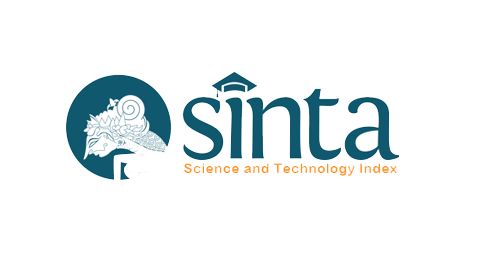The Effect Of Laughter Therapy On Blood Pressure In Hypertensive Patients In Rw 05 Cicaheum Urban Village, Bandung
DOI:
https://doi.org/10.35568/healthcare.v6i2.4754Keywords:
Hypertension, Laughter Therapy, Blood pressureAbstract
Hypertension is an increase in blood pressure of more than 140/90 mmHg. Hypertension is a disease that increases every year and it is estimated that by 2025 there will be 1.5 billion people affected by hypertension. Hypertension is usually called the silent killer because it can cause complex complications that cause death. Management of hypertension can be in the form of pharmacological and non-pharmacological therapies. One of the non-pharmacological therapies that is effective in overcoming hypertension is laughter therapy, because it can help improve blood circulation. The purpose of this study was to determine the effect of laughing therapy on blood pressure in patients with hypertension in the RW 05 area of Cicaheum Village, Bandung City. This research method uses quasi experiment method with one group design pretest-posttest, using purposive sampling technique, with a total sample of 18 respondents. The instruments used were blood pressure measurement SOP and laughing therapy SOP. Therapy was carried out twice a week for three weeks with a total of 6 interventions. Previously, a normality test was carried out with the results of p-value <0.05, so the analysis of this study used the Wilcoxon Rank Test non-parametric test. The results of the study with the results of the analysis of the p-value of systolic blood pressure 0.001 (<0.05) and the p-value of diastolic blood pressure 0.001 (<0.05), showed the effect of laughter therapy on blood pressure in hypertensive patients in RW 05 Cicaheum Village. This research suggests that laughter therapy can be applied as a complementary therapy to help lower blood pressure.
Downloads
References
Bete, D., Kurniyanti, M. A., & Mayasari, S. I. (2022). Terapi Tertawa Terhadap Tekanan Darah Pada Lansia Dengan Hipertensi. 14(September), 719–730
Cookson, M. D., & Stirk, P. M. R. (2019). Lansia dan hipertensi BAB 2.
Dinas Kesehatan. (2023). Tabel Data Penyakit Terbanyak. https://dinkes.bandung.go.id/penyakit-terbanyak/
Essay, R., & Oliveira, R. (2022). A systematic review of the effects of laughter on blood pressure and heart rate variability. 35(2), 135–167.
Griadhi, P. A. (2016). Sistem Kardiovaskuler. Universitas Udayana, 1–17
Himawan, R., Aryatu, M., Rusnoto, & Indanah. (2019). The Effect of Laughter Therapy to Decrease Blood Pressure in Patients with Hypertension Patients at Welahan 1 Primary Health Care. 15(IcoSIHSN), 211–214. https://doi.org/10.2991/icosihsn-19.2019.46
Kemenkes RI. (2019). Pedoman Pelayanan Kefarmasian Pada Hipertensi. Kementrian Kesehatan RI, Direktorat Jenderal Kefarmasian dan Alat Kesehatan
Kusuma, W., Tiranda, Y., & Sukron. (2021). Terapi Komplementer Yang Berpengaruh Terhadap Penurunan Tekanan Darah Pasien Hipertensi Di Indonesia : Literature Review. International Journal of Intellectual Discourse (IJID), 39(8), 102–111.
Nurhusna, Y. O. dan A. S. (2018). Pengaruh Terapi Tertawa Terhadap Penurunan Tekanan Darah Penderita Hipertensi Di Puskesmas Olak Kemang Kota Jambi. Energies, 6(1), 1–8. http://journals.sagepub.com/doi/10.1177/1120700020921110
Pane, J. P., Simorangkir, L., & Saragih, P. I. S. B. (2022). Faktor-Faktor Risiko Penyakit Kardivaskular Berbasis Masyarakat. Jurnal Penelitian Perawat Profesional, 4(4), 1183–1192.
R Rukma Juslim, & Herawati, F. (2018). Penyakit Kardiovaskular: Seri Pengobatan Rasional. Graha Ilmu, XII+204. http://repository.ubaya.ac.id/37369/7/Seri Pengobatan Rasional 1-Penyakit Kardiovaskular.pdf
Stöcker, W. (2018). Komplementer. In Lexikon der Medizinischen Laboratoriumsdiagnostik. https://doi.org/10.1007/978-3-662-49054-9_1734- 1
WHO. (2021). More than 700 million people with untreated hypertension. World Health Organization. Online : https://www.who.int/news/item/
Downloads
Published
Issue
Section
License
Copyright (c) 2024 The Author(s)

This work is licensed under a Creative Commons Attribution 4.0 International License.

















